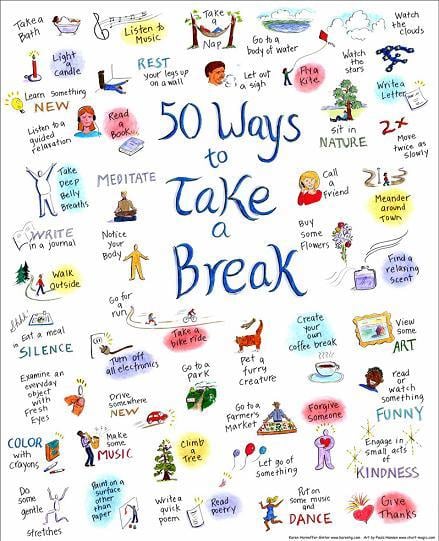Do Nothing
Micène Fontaine, August 1, 2020
August. The dog days of summer are upon us. The weight of sitting at my desk on a sultry Louisiana afternoon feels much heavier than usual. It’s not like me to have difficulty concentrating, yet here I am, busying around with emails, Slack, etc. While I am fooling myself into thinking I am being productive and doing meaningful work, it quickly dawned on me that I have not taken a break in hours and that I have not had a summer break - not really anyway (Courtesy of running a business amid a pandemic, travel bans, a move, life, etc. I know you know what I mean.)
Of course, my predicament (working safely from home in the comfort of my air-conditioned office with a lovely view) is still a breeze compared to millions who do not enjoy that luxury. I realize that, and yet, the power of taking a break remains a powerful way to be more (not less) productive. Research backs this up, and forward-thinking corporations across the globe have implemented policies to incentivize their employees to disconnect from work. Alex Soojung-Kim Pang, a Stanford scholar, explains in his book “Rest: Why You Get More Done When You Work Less” that “busyness is not a means to accomplishment, but an obstacle to it.”
Why am I sharing all this?
- Because sometimes we need permission to give ourselves a break.
- Because fewer hours of focused attention with a clear action plan will yield better results than countless hours of diluted presence.
- Because a lot is going on and our brains need time to process so it can help us make better decisions, be more productive, and more creative (that’s why many of us have our best ideas while in the shower, out for a walk, etc.)
- Because our “To Don’t” lists contribute as much to doing meaningful work as our endless “To Do” lists.
Think of the work you do as designers and architects. There is an intentionality about where nothing is. It gently guides our gaze. The same goes for graphic design or photography. You can fill the frame or page, and nothing stands out. Or, you can leave blank space and use it to call attention to what matters most. The latter is what breaks do.
Take a break and think about it
 Above are 50 Ways to Take a Break by Karen Horneffer-Ginter, Ph.D., psychologist and the author of “Full Cup, Thirsty Spirit: Nourishing the Soul When Life’s Just Too Much”
Above are 50 Ways to Take a Break by Karen Horneffer-Ginter, Ph.D., psychologist and the author of “Full Cup, Thirsty Spirit: Nourishing the Soul When Life’s Just Too Much”



